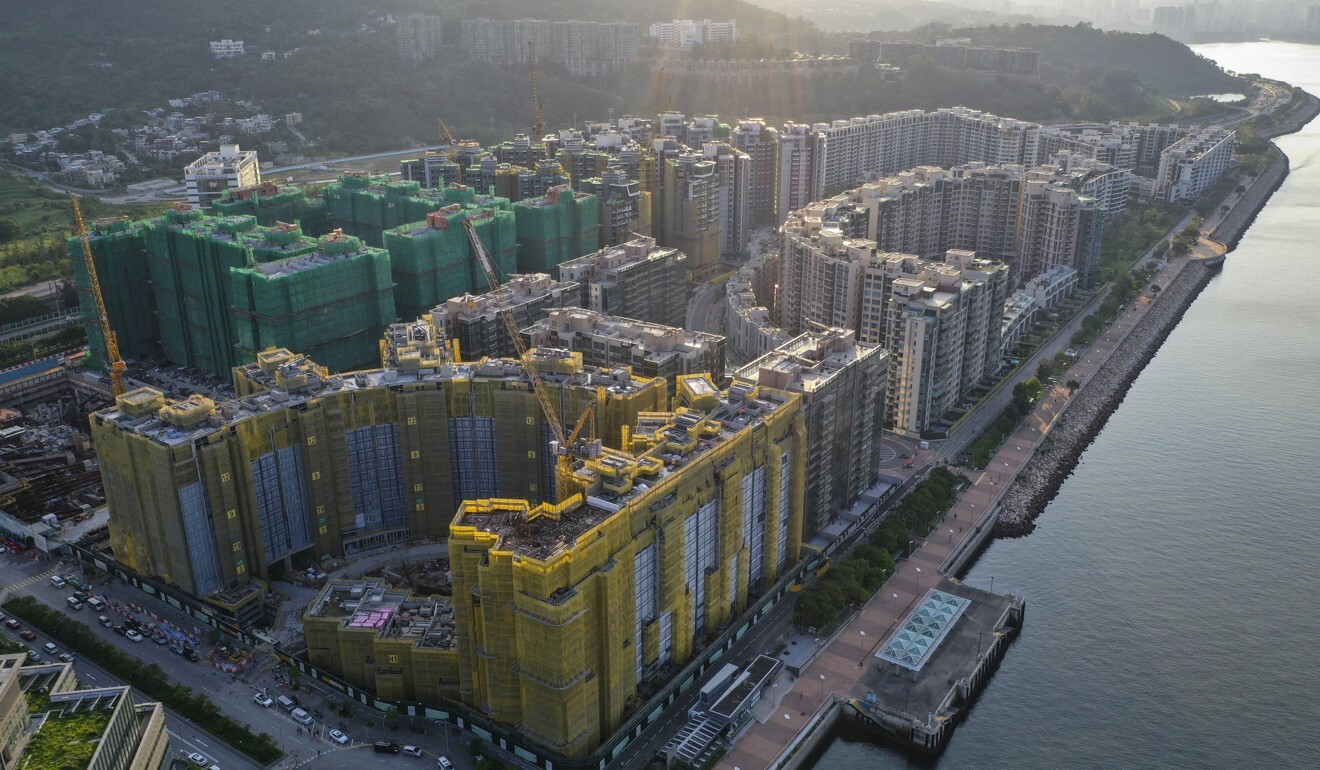
Hong Kong lawmakers shelve proposal to impose vacancy tax on developers, citing lack of time
- Bills committee members agree to halt vetting, with some lawmakers suggesting a public hearing should be held on the matter
- Housing sector specialists say move will offer developers ‘breathing space’ to roll out luxury flats
Housing sector specialists said the shelving of the vacancy tax bill would not have any impact on property prices or the supply of new flats, but would offer some “breathing space” for developers to readjust their strategies for selling luxury flats.
The Rating (Amendment) Bill 2019, the fourth piece of legislation being ditched due to time constraints in the past few weeks, was a plan floated two years ago to punish developers who leave flats empty for a long time amid soaring prices. It was mostly welcomed across the political spectrum, except by pro-business parties.
After about two hours of discussions on Tuesday, Jeffrey Lam Kin-fung, chairman of the bills committee on the proposed tax, said that if the bill was put to debate at before the legislative session ended in mid-July, the committee would need to finish its works on or before July 3.
But he noted that members of the committee still had not started scrutinising various clauses in the proposal, while some lawmakers had suggested a public hearing should be held on the matter and amendments to the bill should be tabled.

“This bill is controversial and everyone cares very much about it,” Lam said in the meeting. “It involves a large sum of money. I also agree with suggestions from lawmakers that we need to listen to public views. But the time left is not too much.”
Members of the committee agreed to halt vetting the bill, which would have targeted all newly completed flats left empty – unsold and not rented out – for more than six months in a year.
Flats are considered finished a year after the developer obtains an occupation permit, while the proposed tax rate will be equivalent to two years of rental income, calculated by government specialists and based on market rates.

02:21
How public and private sectors can tackle Hong Kong's housing crunch
Real estate sector lawmaker Abraham Razack said it would not be possible to scrutinise the bill clause by clause and it would be difficult for legislators to table amendments in a few days.
“Many questions are still not answered well. The concept behind setting up the law has not been clarified well. This is very important,” Razack said in the meeting.
He was also concerned whether the bill would contravene the Basic Law, which states that Hong Kong should protect the right of individuals to the acquisition, use, disposal and inheritance of property and their right to compensation for lawful deprivation of their property in accordance with the law.
Steven Ho Chun-yin, from the Democratic Alliance for the Betterment and Progress of Hong Kong, agreed officials had not provided sufficient details in their document sent to lawmakers.
The vacancy tax, announced by Chief Executive Carrie Lam Cheng Yuet-ngor in June 2018, is seen as a populist measure in a city that struggles to provide affordable housing. The bill was introduced to the legislature for scrutiny last October.
The Transport and Housing Bureau on Tuesday night expressed disappointment that the bill could not be passed in the current legislative term.
The bureau’s spokesman said it had “spared no effort” in facilitating the scrutiny of the bill and explaining its policy objectives.
He said the government would closely monitor the residential property market and implement measures when necessary to ensure its healthy development.
“The government will take into account the market circumstances when considering whether to reintroduce the bill into Legco for scrutiny in the next [legislative] term,” he said.
Lawmakers ditched three other bills – a proposed ban on e-cigarettes and new tobacco products and a plan for premium taxi service franchises earlier this month, as well as a long-delayed proposal on a mandatory waste disposal charge on Monday – citing the lack of time to complete the work before a legislative session ended.
Housing Authority member Stanley Wong Yuen-fai said he did not foresee the shelving of the bill affecting property prices or the supply of new flats.

“The bill originally aimed to prevent developers from hoarding newly completed flats for propping up property prices,” he said. “But the current situation is very different, with the economy ravaged by last year’s social movement and the Covid-19 pandemic.
“The property market is basically heading towards a downward spiral, so there is no incentive for developers to hoard flats and withhold property sales. On the contrary, developers would like to roll out new flats quickly to avoid hoarding too many flats,” he said.
Wong Leung-sing, senior associate director of research at Centaline Property Agency, agreed, saying the aborted move would provide some “breathing space” for developers to slow down the speed of rolling out large and luxury flats.
“The coronavirus pandemic has hit the property market, especially the large and luxury flats sector, hard because investors can’t come over to buy properties,” he said.
“The shelving of the bill could allow developers to have more time to readjust their time tables for selling luxury flats. They don’t need to rush to put them on the market and could slow down their sales. But the supply of small and medium-sized flats would be unaffected,” he said.


